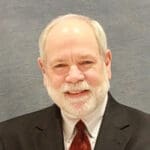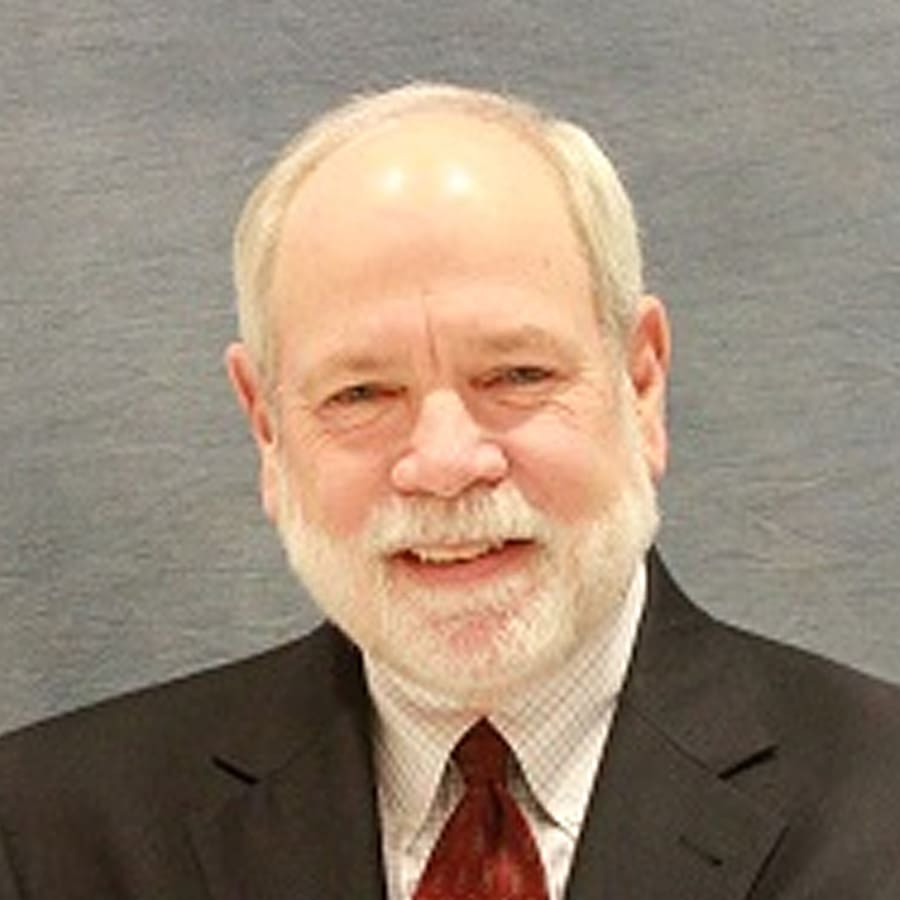(For a review of David Naugle’s new book Reordered Love, Reordered Lives, we recommend that of Byron Borger.)
Comment: It appears that you have a dog named “Kuyper.” Isn’t that a rather weird name for a dog?
David Naugle: Yes, we do have a dog named “Kuyper,” and he is like a member of the family! When we first got him at the tender age of six weeks, we were thinking of names as we were driving home with this tiny little quivering creature that we could fit in the palms of our two cupped hands. “Kierkegaard” and “Dooyeweerd” were way too cumbersome as names. Then “Kuyper” popped into our minds. Its ring, uniqueness and symbolism struck us immediately. Naming Kuyper after Abraham Kuyper has turned out to be apropos, given our dog Kuyper’s own energy and intelligence—he’s feisty and smart, and has a strong vocabulary for a canine! Furthermore, Kuyper’s antics and companionship have given our family lots of joy, and it seems to me that animals are divinely intended to play an important role in our felicity as human beings (isn’t this a possible implication of the creation story in Genesis 1-2?).
Not only this, but the name “Kuyper”—we have to pronounce and spell it frequently for the uninitiated—has given my wife and I frequent opportunities to tell others about the real Abraham Kuyper (1837-1920). We describe the role his books and thought have played in our personal lives, as well as how influential he has been in a branch of the reformed church, and as a polymath in Dutch education, politics, journalism and so on. People who are familiar with Abraham Kuyper are typically quite amused that we named the dog “Kuyper.” When I am introduced to speak in certain settings, he (the dog) is inevitably mentioned! I even refer to Kuyper in the acknowledgements section of Reordered Love!
 |
Comment: Your wonderful new book Reordered Love, Reordered Lives explores the meaning of happiness. Can you summarise for us in a paragraph or two what you believe makes people happy?
DN: In response to this question, let me quote the definition of happiness that I give in the preface to the book.
The view of happiness I have presented here is significantly countercultural. Contrary to popular opinion, happiness is not person-relative ‘do your own thing’ or an intense hedonistic pursuit. Rather, it is the condition of genuine human fulfillment and flourishing rooted in a relationship with God whose mercy and grace demonstrated in Jesus Christ reorders our loves and lives in righteous and virtuous ways through God’s Spirit so that we are able to enjoy, indeed, to relish, all aspects of life and creation appropriately in him.
In the first chapter of the book, I make an important distinction between a “hedonistic” and an “Edenistic” happiness (a point I owe to my brother Mark Naugle). I contrast what many people think happiness is (a “yuppie” word), and the kind of happiness God intended for human beings to experience originally in creation and now in Christ. The Hebrews called it “shalom.”
God intended us to live fully in the largess of indescribable blessing, mediated through multifaceted aspects of his marvelous world in a complete and satisfying way. It’s not a hedonistic happiness, but an edenistic happiness, one which roots the fullness of human life in God and his creation. On page 23 of the book I put it like this: “This grand union of God, ourselves, and the whole cosmos in a sacred synthesis of rightly ordered love constitutes the deep meaning of happiness.”
Comment: Life is not all happiness, as I am sure you would admit. How do we make sense of the heartbreak in our lives?
DN: Great question! Making sense of heartbreak in our lives, I believe, depends on how you define happiness (see the previous question). In any case, my discussion of the deep meaning of happiness in this book follows the unfolding narrative of a biblical worldview in terms of creation, fall, redemption and consummation:
- The deep meaning of happiness (Shalom) as God intended at creation rooted in rightly ordered loves and lives;
- Happiness lost in the fall of humanity into sin and replaced with the unhappiness of devastating ignorance and disordered loves and lives;
- The deep meaning of happiness already redeemed, and one day fully restored in Jesus Christ who graciously reorders our loves and lives through the gospel in this present life.
In chapter seven of the book, I do my best to explain how our present experience of happiness is situated between the “already” and the “not yet” of the kingdom of God, at this time between the times of the cross and the consummation. Presently, we still have work to do, callings to fulfill, service to render, sacrifices to offer and suffering to experience.
Though our experience of renewed happiness in the love of God enables us to esteem and love all things wisely and well, it obviously takes place in the midst of a fallen, though redeemed creation. In this “proximate” setting, we still struggle with the residual effects of sin (i.e., broken-heartedness), and at this point in redemptive history, we must enroll in the school of Christ for the ongoing mending of our hearts.
My definition grounds happiness steadfastly in the certainty of the love of God, avoids the Gnostic denigrations of creation, culture, embodiment and history, and acknowledges the way both sin and redemption have affected all aspects of reality, both now and not yet. In this context, I think we can understand our ongoing brokenness, as we look forward to the day when God “will wipe away every tear from their eyes, and death shall be no more, neither shall there be mourning, nor crying, nor pain anymore, for the former [fallen] things have passed away,” when God makes all things new (Revelation 21:3-5).
Comment: Since love is so important in your writing, I assume it is also important in your life. What are some of the things you love most deeply?
DN: Well, one of the things I love is this question! As an “already” but “not yet” follower of Jesus Christ, I struggle with the disorder in my own loves and am in process of having my own deepest affections and desires reordered through various Christian practices, including the liturgies of the church, personal disciplines, God’s Word, the Holy Spirit and people. My deepest motivations, inclinations, dispositions and tendencies, which govern my life, are in need of continuous renovation and renewal.
In my own personal ongoing reformation, then, I am seeking to love God, myself, other people, and the creation in the way I should. This is no easy task. Thank God for grace and the Holy Spirit. Philippians 1:9-11 has become a touchstone text for me in this central and challenging area:
It is my prayer that your love may abound more and more, with knowledge and all discernment, so that you may approve what is excellent, and so be pure and blameless for the day of Christ, filled with the fruit of righteousness that comes through Jesus Christ, to the glory and praise of God.
To answer your question more specifically, I would say that in God, I love my wife; my daughter; my vocation as a professor; books; writing; students; my home; my car; food; drink; yard work; playing the guitar, drums, and golf; Apple computers; the music of the Beatles, Jon Foreman, Switchfoot, U2, Kate Campbell, Brooks Williams, Pierce Pettis, Billy Crockett, Mozart, Bach, and Beethoven; and “Kuyper,” of course!
Comment: If our readers want to deepen their own thinking about love, life, happiness, what would you recommend they look at, listen to, read, or do—in addition to reading your book?
DN: Look at (and evaluate) films like Will Smith’s The Pursuit of Happyness. Listen to the music and lyrics of Switchfoot. Read St. Augustine, beginning with the Confessions. Practice the Christian disciplines (see “The Disciplines and Me” in chapter seven of my book). Visit www.reorderedlove.com!


